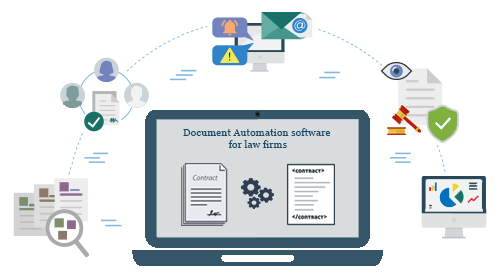
Legal Research Automation: Enhancing Efficiency in Analysis
In the ever-evolving landscape of legal practice, the demand for efficient and accurate legal research has never been higher. Traditional methods of sifting through volumes of legal texts can be time-consuming and prone to human error. As legal professionals strive to streamline their workflows, the integration of automation tools becomes crucial for staying competitive and delivering high-quality results.
The Rise of Legal Research Automation
The advent of technology has paved the way for groundbreaking advancements in legal research. Automation tools harness the power of artificial intelligence and machine learning to analyze vast amounts of legal data swiftly and accurately. These tools have become indispensable for legal professionals seeking to expedite the research process and ensure a comprehensive understanding of relevant legal precedents.
Enhanced Accuracy and Reduced Workload
One of the primary advantages of legal research automation is its ability to enhance accuracy while simultaneously reducing the workload on legal practitioners. By leveraging algorithms and advanced search functionalities, these tools can quickly identify relevant cases, statutes, and regulations, significantly minimizing the risk of overlooking crucial information. This increased accuracy not only improves the quality of legal analysis but also instills confidence in the outcomes.
Efficient Extraction of Legal Insights
Legal research automation goes beyond conventional keyword searches, offering sophisticated algorithms that can extract meaningful insights from complex legal texts. These tools can identify patterns, trends, and relationships within legal documents, providing practitioners with valuable information that might be challenging to discern through manual analysis alone. This efficiency in data extraction empowers legal professionals to make more informed decisions and develop stronger legal arguments.
Time-Saving Benefits for Legal Professionals
Time is a precious resource in the legal profession, and legal research automation serves as a valuable time-saving tool. By automating the labor-intensive process of sifting through legal databases and documents, legal professionals can allocate more time to strategic thinking, case strategy development, and client interaction. This not only boosts productivity but also allows for a more focused and deliberate approach to legal practice.
Integration Challenges and Ethical Considerations
While legal research automation offers significant benefits, its adoption is not without challenges. Integrating these tools into existing workflows may require adjustments, and legal professionals must address ethical considerations related to the use of AI in the legal field. Striking a balance between efficiency and ethical practice is crucial to ensuring the responsible implementation of legal research automation.
The Future of Legal Research: Embracing Automation
As the legal landscape continues to evolve, embracing the full potential of legal research automation is key to staying competitive. The synergy between human expertise and technological efficiency is a powerful combination that can revolutionize the legal profession. By adapting to these technological advancements, legal professionals can not only enhance their capabilities but also deliver superior results to their clients.
In conclusion, legal research automation is a transformative force in the legal industry, offering enhanced efficiency, accuracy, and time-saving benefits. The integration of these tools is crucial for legal professionals aiming to navigate the complexities of the legal landscape effectively. Embracing the future of legal research means harnessing the power of automation to optimize workflows and deliver optimal outcomes for clients.
To explore more about the capabilities of legal research automation, visit Legal Research Automation.




